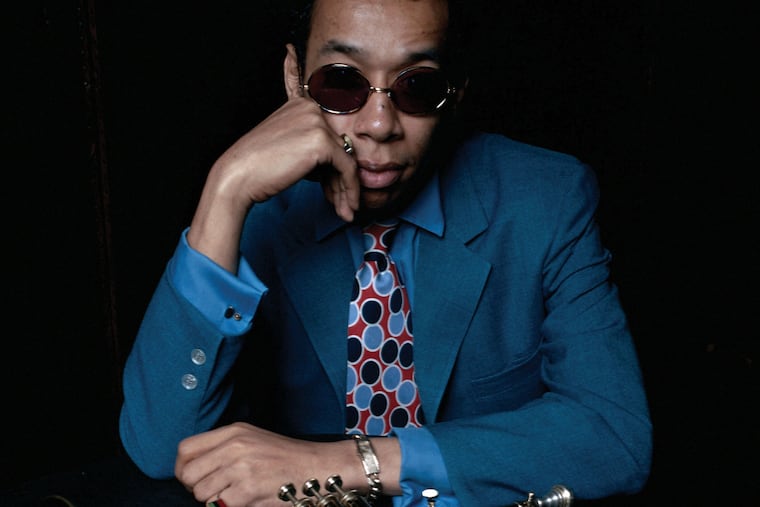Jazz legend Lee Morgan’s life and legacy gets celebratory tribute at Chris’ Jazz Cafe
As a teenager, Morgan played with greats like Dizzy Gillespie, John Coltrane, and Art Blakey. The second annual Lee Morgan Tribute is this weekend.

The enduring influence of Lee Morgan’s music is too often overshadowed by the circumstances of his death. At 33, the trumpeter was shot dead outside the New York City club Slugs’ Saloon by his common-law wife Helen, in 1972. The Philadelphia native had already made a profound impact on the music that is still felt half a century later.
This Friday and Saturday, Chris’ Jazz Café will host its second annual Lee Morgan Tribute Weekend, honoring Morgan with performances of his music by pianist Orrin Evans and his quintet, with special guests Ravi Coltrane on saxophone and Nicholas Payton on trumpet.
Evans is quick to shrug off any controversy about the fact that the commemoration falls on the date of Morgan’s tragic death rather than his birth.
“I don’t care if you choose to celebrate the day I stubbed my toe,” the pianist said with his usual sly humor. “This is about honoring and acknowledging an artist that I’ve loved and respected for years.”
Morgan’s legacy is an estimable one, as has been acknowledged in recent years with the release of Kasper Collin’s 2016 documentary, I Called Him Morgan, and the 2021 release of The Complete Live at the Lighthouse, a stunning set compiling more than seven hours of 1970 concert performances from the California club. His wide-ranging music spanned from the post-bop roots of his sound to his groundbreaking soul-jazz hit The Sidewinder to the increasingly complex and exploratory direction he was taking in his late releases.
Morgan was still a teenager when he began recording for Blue Note Records; he joined Dizzy Gillespie’s Big Band at 18, recorded with John Coltrane at 19, and joined Art Blakey’s Jazz Messengers the following year. In 1963, he released The Sidewinder, its boogaloo-inspired title track becoming one of the most popular tunes in jazz history, a crossover hit and a foundational influence for melding serious jazz with robust soul.
Perhaps it’s due to his brief tenure on the planet that Morgan is not always mentioned in the same breath as such jazz icons as Miles Davis, Thelonious Monk, or John Coltrane. Even his grave was lost, its marker buried under soil in Feasterville’s White Chapel Memorial Park until being uncovered by a fan late last year. A historical marker honoring Morgan will be installed later this year in Center City.
Still, he managed to create a wealth of indelible music. As Evans pointed out, “I don’t think there’s one trumpet player in the world that would say they’re not influenced by Lee Morgan.”
That includes Payton, the New Orleans native whose music melds the traditions of Black American Music (the term he prefers to jazz) with elements of hip hop, funk, and R&B. “I feel like I [pay tribute to Lee Morgan] every time I pick up my horn,” Payton said. “He’s just a part of my musical DNA.”
The second annual Lee Morgan Tribute Weekend runs Feb. 10-11 at Chris’ Jazz Cafe. Tickets: www.chrisjazzcafe.com/events/67485